
Linguistic strategies for improving informed consent in clinical trials among low health literacy patients
Evidence-based guidance on how to improve informed consent processes for patients being invited to participate in clinical research.
| 0 Comments | Evaluated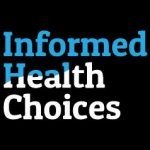
Informed Health Choices Podcasts
Each episode includes a short story with an example of a treatment claim and a simple explanation of a Key Concept used to assess that claim
| 1 Comment | Evaluated
Informed Health Choices Primary School Resources
A textbook and a teachers’ guide for 10 to 12-year-olds. The textbook includes a comic, exercises and classroom activities.
| 0 Comments | Evaluated
Ebm@school – a curriculum of critical health literacy for secondary school students
A curriculum based on the concept of evidence-based medicine, which consists of six modules.
| 0 Comments | Evaluated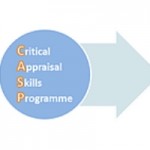
Confidence Intervals – CASP
The p-value gives no direct indication of how large or important the estimated effect size is. So, confidence intervals are often preferred.
| 0 Comments | Evaluated
Know Your Chances
This book has been shown in two randomized trials to improve peoples' understanding of risk in the context of health care choices.
| 0 Comments | Evaluated
Philosophy for Children (P4C)
P4C promotes high-quality classroom dialogue in response to children’s own questions about shared stories, films and other stimuli.
| 0 Comments | Evaluated
Thinking, talking, doing science
An experimental educational intervention in teaching science at primary schools.
| 0 Comments | Evaluated
Evidence for everyday health choices
A 17-min slide cast by Lynda Ware, on the history of EBM, what Cochrane is, and how to understand the real evidence behind the headlines.
| 0 Comments
Sunn Skepsis
Denne portalen er ment å gi deg som pasient råd om kvalitetskriterier for helseinformasjon og tilgang til forskningsbasert informasjon.
| 0 Comments
Dancing statistics: Explaining variance
A 5-minute film demonstrating the statistical concept of variance through dance.
| 0 Comments
Dancing statistics: sampling & standard error
A 5-minute film demonstrating the statistical concept of sampling and standard error through dance.
| 0 Comments
Dancing statistics: correlation
A 4-minute film demonstrating the statistical concept of correlation through dance.
| 0 Comments
Julia Belluz – Lessons from the trenches of evidence-based health journalism at Vox.com
20-minute talk by Julia Belluz on the need to bring the cultures of health journalism and EBM together.
| 0 Comments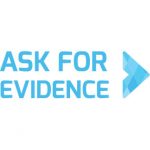
Don’t jump to conclusions, #Ask for Evidence
An introduction to the ‘Ask for Evidence’ initiative launched by ‘Sense about Science’ in 2016.
| 0 Comments

How can you know if the spoon works?
Short, small group exercise on how to design a fair comparison using the "claim" that a spoon helps retain the bubbles in champagne.
| 0 Comments
English National Curriculum vs Key Concepts – Key Stage 3
A linked spreadsheet showing how the Key Concepts map to the Science National Curriculum in England at Key Stage 3 (ages 11-14).
| 0 Comments
DRUG TOO
James McCormick with another parody/spoof of the Cee Lo Green song ‘Forget You’ to prompt scepticism about many drug treatments.
| 0 Comments
Calling Bullshit Syllabus
Carl Bergstrom's and Jevin West's nice syllabus for 'Calling Bullshit'.
| 0 Comments
The surrogate battle – is lower always better?
James McCormick recruits a furious Fuhrer to point out that taking drugs to lower surrogate measures of ill health is a confidence trick.
| 0 Comments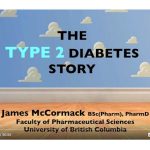
Tom Hanks and Type 2 Diabetes
A 50-minute illustrated talk by James McCormack prompted by Tom Hanks’ announcement that he had been diagnosed with Type 2 diabetes.
| 0 Comments
Bohemian Polypharmacy
James McCormack recruits help from Queen to warn of the dangers of ‘Bohemian Polypharmacy’ in music.
| 0 Comments
Choosing Wisely
James McCormack using song and dance to warn about the negative effects of overtreatment.
| 0 Comments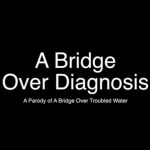
Like a bridge overdiagnosis
James McCormack with another of his brilliant parodies, warning about the dangers of becoming inappropriately labelled as ill.
| 0 Comments
‘Tricks to help you get the result you want from your study (S4BE)
Inspired by a chapter in Ben Goldacre’s ‘Bad Science’, medical student Sam Marks shows you how to fiddle research results.
| 0 Comments
Reporting the findings: Absolute vs relative risk
Absolute Differences between the effects of two treatments matter more to most people than Relative Differences.
| 0 Comments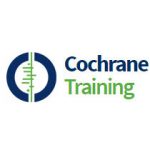
It’s just a phase
A resource explaining the differences between different trial phases.
| 0 Comments
Strictly Cochrane: a quickstep around research and systematic reviews
An interactive resource explaining how systematic and non-systematic reviews differ, and the importance of keeping reviews up to date.
| 0 Comments
The Princess and the p-value
An interactive resource introducing reporting and interpretation of statistics in controlled trials.
| 0 Comments

Teach Yourself Cochrane
Tells the story behind Cochrane and the challenges finding good quality evidence to produce reliable systematic reviews.
| 3 Comments
Explaining the mission of the AllTrials Campaign (TED talk)
Half the clinical trials of medicines we use haven’t been published. Síle Lane shows how the AllTrials Campaign is addressing this scandal.
| 0 Comments
Fish oil in the Observer: the return of a $2bn friend
Ben Goldacre draws attention to people’s wish to believe that a pill can be the solution to a complicated problem.
| 0 Comments
Building evidence into education
Ben Goldacre explains why appropriate infrastructure is need to do clinical trials of sufficient rigour and size to yield reliable results.
| 0 Comments
Anecdotes are great – if they convey data accurately
Ben Goldacre gives examples of how conclusions based on anecdotes and biased research can be damagingly misleading.
| 0 Comments
Studies of studies show that we get things wrong
Ben Goldacre gives examples of how conclusions based on anecdotes and biased research can be damagingly misleading.
| 0 Comments
Dodgy academic PR
Ben Goldacre: 58% of all press releases by academic institutions lacked relevant cautions and caveats about the methods and results reported
| 0 Comments
All bow before the mighty power of the nocebo effect
Ben Goldacre discusses nocebo effects, through which unpleasant symptoms are induced by negative expectations, despite no physical cause.
| 0 Comments
How do you regulate Wu?
Ben Goldacre finds that students of Chinese medicine are taught (on a science degree) that the spleen is “the root of post-heaven essence”.
| 0 Comments
Science is about embracing your knockers
Ben Goldacre: “I don’t trust claims without evidence, especially not unlikely ones about a magic cream that makes your breasts expand.”
| 0 Comments
NMT are suing Dr Wilmshurst. So how trustworthy are this company? Let’s look at their website…
Ben Goldacre celebrates Peter Wilmshurst, the doctor who blew the whistle on research misconduct in a study to which he was a contributor.
| 0 Comments
Over there! An 8 mile high distraction made of posh chocolate!
Ben Goldcare illustrates strategies used by vested interests to discredit research with ‘inconvenient’ results.
| 0 Comments
Brain imaging studies report more positive findings than their numbers can support. This is fishy.
Ben Goldacre explores how twice as many positive findings as could realistically have been expected from the data reported may have occurred
| 0 Comments
What if academics were as dumb as quacks with statistics?
Ben Goldacre introduces a statistical error that appears in about half of all the published papers in academic neuroscience research.
| 0 Comments
The strange case of the magnetic wine
Ben Goldacre shows how claims for the wine-maturing effects of magnets could be assessed with 50 people in an evening.
| 0 Comments
Screen test
Ben Goldacre notes that even if people realize that screening programmes have downsides, people don’t regret being screened.
| 0 Comments
Sampling error, the unspoken issue behind small number changes in the news
Ben Goldacre stresses the importance of taking account of “sampling variability” and confidence intervals.
| 0 Comments
The certainty of chance
Ben Goldacre reminds readers how associations may simply reflect the play of chance, and describes Deming’s illustration of this.
| 0 Comments
Publish or be damned
Ben Goldacre points out the indefensible practice of announcing conclusions from research studies which haven’t been published.
| 0 Comments
How myths are made
Ben Goldacre draws attention to Steven Greenberg’s forensically based illustration of citation biases.
| 0 Comments
Foreign substances in your precious bodily fluids
Ben Goldacre points out that there is no evidence giving strong support either to water fluoridationists or to anti-fluoridationists.
| 0 Comments
Is it okay to ignore results from people you don’t trust?
Ben Goldacre: why it’s important to consider vested interests when judging research, but not to dismiss research by people you don’t like.
| 0 Comments
Cherry picking is bad. At least warn us when you do it.
Ben Goldacre illustrates how biased ‘cherry picking’ and choosing from the relevant evidence can result in unreliable conclusions.
| 0 Comments
Why won’t Professor Susan Greenfield publish this theory in a scientific journal?
Ben Goldacre challenges senior Oxford professor to publish the evidence supporting her claim that computer games cause dementia in children.
| 0 Comments
The Man Who Swallowed The Pea, and Other Tall Tales
Tamara Ingamells’ lesson plan using the claim that MMR vaccination causes autism to help teenagers understand the importance of biases.
| 0 Comments
Weasels Are on the Loose
Weaseling is the use of certain words to weaken a claim, so that the author can say something without actually saying it and avoid criticism
| 0 Comments
Dragon Lesson Plan to investigate multivariate categorical data
Investigating multivariate data by sorting and organising a set of dragon cards to uncover information about the set.
| 0 Comments
Fast Stats to explain absolute risk, relative risk and Number Needed to Treat (NNT).
A 15-slide presentation on ‘Fast Stats’ to explain absolute risk, relative risk and Number Needed to Treat (NNT) prepared by PharmedOut.
| 0 Comments
Unsubstantiated and overstated claims of efficacy
A 32-slide presentation on misleading advertisements and FDA warnings prepared by PharmedOut.
| 0 Comments
Critical appraisal
University of New South Wales Medical Statistics Tutorial 4 addresses Critical Appraisal.
| 0 Comments
Probability and tests of statistical significance
University of New South Wales Medical Statistics Tutorial 6 addresses ‘Probability and tests of statistical significance’.
| 0 Comments
Bias – the biggest enemy
University of New South Wales Medical Stats Online Tutorial 5 addresses ‘Bias - the biggest enemy’.
| 0 Comments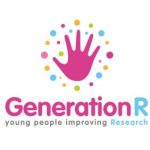
Generation R – Pictionary research activity
GenerationR’s version of Pictionary using research concepts instead of usual game cards, allocated in different levels of difficulty.
| 0 Comments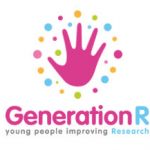
Generation R – Clinical trials card-sorting exercise
Card-sorting exercise developed by GenerationR to familiarise children and young people with jargon terms used by clinical researchers.
| 0 Comments
Clinical Research Workshop
‘Clinical Research Workshop’ developed for young people by the Centre of the Cell.
| 0 Comments
Introduction to Evidence-Based Medicine
Bill Caley’s 26 slides with notes used as an ‘Introduction to Evidence-Based Medicine’.
| 0 Comments
Applying evidence to patients
A 27-minute talk on ‘Applying Evidence to Patients’, illustrated by 17 slides, with notes.
| 0 Comments
2×2 tables and relative risk
A 10-min talk on ‘2x2 tables and Relative Risk’, illustrated by 14 slides, with notes.
| 0 Comments
Appraisal of evidence and interpretation of results
A 14-min talk on ‘Appraisal of the Evidence and Interpretation of the Results’, illustrated by 19 slides, with notes.
| 0 Comments
Basic principles of randomised trials, and validity
A 8-min talk on ‘Basic principles of Randomised Trials, and Validity’, illustrated by 15 slides, with notes.
| 0 Comments
Defining clinical questions
An 8-min talk on ‘Defining Clinical Questions’ illustrated by 10 slides, with notes.
| 0 Comments
A way to teach about systematic reviews
81 slides used by David Nunan (Centre for Evidence-Based Medicine, Oxford) to present ‘A way to teach about systematic reviews’.
| 0 Comments
Applying the evidence
Six key slides produced by the University of Western Australia on applying evidence in practice.
| 0 Comments
Appraising the evidence
Six key slides produced by the University of Western Australia to introduce critical appraisal.
| 0 Comments
The power of the placebo effect
Emma Bryce’s video presents information about placebo effects: treatments not supposed to have an effect but which make people feel better.
| 0 Comments
Detectives in the classroom
Five modules of materials for promoting epidemiology among high school students.
| 0 Comments
Not all scientific studies are created equally
David Schwartz dissects two types of studies that scientists use, illuminating why you should always approach claims with a critical eye.
| 1 Comment
Taking account of the play of chance
Differences in outcome events in treatment comparisons may reflect only the play of chance. Increased numbers of events reduces this problem
| 0 Comments
Quantifying uncertainty in treatment comparisons
Small studies in which few outcome events occur are usually not informative and the results are sometimes seriously misleading.
| 0 Comments
Bringing it all together for the benefit of patients and the public
Improving reports of research and up-to-date systematic reviews of reliable studies are essential foundations of effective health care.
| 0 Comments
Applying the results of trials and systematic reviews to individual patients
Paul Glasziou uses 28 slides to address ‘Applying the results of trials and systematic reviews to individual patients’.
| 0 Comments
10 Components of effective clinical epidemiology: How to get started
PDF & Podcast of 1-hr talk by Carl Heneghan (Centre for Evidence-Based Medicine, Oxford) on effective clinical epidemiology.
| 0 Comments
Making the most of the evidence in education
A pamphlet to guide people using research evidence when deliberating about educational policies.
| 0 Comments
Critical appraisal of clinical trials
Slides developed by Amanda Burls for an interactive presentation covering the most important features of well controlled trials.
| 0 Comments
Tipsheet for reporting on drugs, devices and medical technologies
Questions that will be familiar to reporters covering health and medicine.
| 0 Comments
Caffeine Soft Drinks affect Human Heart Rate. Lesson Plan
A lesson to illustrate how medical researchers study the effects of drugs on people.
| 0 Comments
Life saving maths: How does vaccination work?
Vaccinating a large enough proportion of children means everyone is protected, including those who can't be vaccinated.
| 0 Comments
How to work out whether bacon sandwiches are harmful
The headline said there is a 20% greater risk of getting bowel cancer if you eat bacon sandwiches! Are they right?
| 0 Comments
Explaining the unbiased creation of treatment comparison groups and blinded outcome assessment
A class were given coloured sweets and asked to design an experiment to find out whether red sweets helped children to think more quickly.
| 0 Comments
Investigating how to remove bacteria from hands
Investigate the best way to remove bacteria from your hands.
| 0 Comments
Tips for understanding Intention-to-Treat analysis
Ignoring non-compliance with assigned treatments leads to biased estimates of treatment effects. ITT analysis reduces these biases.
| 0 Comments
Tips for understanding Absolute vs. Relative Risk
Absolute Differences between the effects of two treatments matter more to most people than Relative Differences.
| 0 Comments
Applying Systematic Reviews
How useful are the results of trials in a systematic review when it comes to weighing up treatment choices for particular patients?
| 0 Comments
Systematic Reviews and Meta-analysis: Information Overload
None of us can keep up with the sheer volume of material published in medical journals each week.
| 0 Comments
Combining the Results from Clinical Trials
Chris Cates notes that emphasizing the results of patients in particular sub-groups in a trial can be misleading.
| 0 Comments
Tips for understanding Non-inferiority Trials
A non-inferiority experiment endeavours to show that a new intervention is ‘not unacceptably worse’ than the comparison intervention.
| 0 Comments
How Science Works
Definitions of terms that students have to know for 'How Science Works' and associated coursework, ISAs, etc
| 0 Comments
Cyagen is paying for citations
Pharmaceutical company Cyagen offers researchers and other writers $100 or more for citing their products in publications.
| 0 Comments
GenerationR – The importance of involving children and young people in research
3/3, 22-min video at the launch of GenerationR, a network of young people who advise researchers.
| 0 Comments
Generation R – The importance of medical research in children and young people
2/3, 35-min video at the launch of GenerationR, a network of young people who advise researchers.
| 0 Comments
Generation R – The need to reduce waste in clinical research involving children
1/3, 14-min video at the launch of GenerationR, a network of young people who advise researchers.
| 0 Comments
No Power, No Evidence!
This blog explains that studies need sufficient statistical power to detect a difference between groups being compared.
| 0 Comments
Beginners guide to interpreting odds ratios, confidence intervals and p values
A tutorial on interpreting odds ratios, confidence intervals and p-values, with questions to test the reader’s knowledge of each concept.
| 0 Comments
Sample Size matters even more than you think
This blog explains why adequate sample sizes are important, and discusses research showing that sample size may affect effect size.
| 0 Comments
What is it with Odds and Risk?
This blog explains odds ratios and relative risks, and provides the formulae for calculating both measures.
| 0 Comments
Preclinical animal studies: bad experiments cost lives
This blog notes that few therapies that treat disease in animals successfully translate into effective treatments for humans.
| 0 Comments
Surrogate Endpoints in EBM: What are the benefits and dangers?
What are surrogate outcomes, their pros and cons, and why you should be cautious in extrapolating from them to clinical decisions.
| 0 Comments
The Systematic Review
This blog explains what a systematic review is, the steps involved in carrying one out, and how the review should be structured.
| 0 Comments
The Mean: Simply Average?
This blog explains ‘the mean’ as a measure of average; describes how to calculate it; and flags up some caveats.
| 0 Comments
Publication Bias: An Editorial Problem?
A blog challenging the idea that publication bias mainly occurs at editorial level, after research has been submitted for publication.
| 0 Comments
The Bias of Language
Publication of research findings in a particular language may be prompted by the nature and direction of the results.
| 0 Comments
Defining Bias
This blog explains what is meant by ‘bias’ in research, focusing particularly on attrition bias and detection bias.
| 0 Comments
Balancing Benefits and harms
A blog explaining what is meant by ‘benefits’ and ‘harms’ in the context of healthcare interventions, and the importance of balancing them.
| 0 Comments
Data Analysis Methods
A discussion of 2 approaches to data analysis in trials - ‘As Treated’, and ‘Intention-to-Treat’ - and some of the pros and cons of each.
| 0 Comments
Defining Risk
This blog defines ‘risk’ in relation to health, and discusses some the difficulties in applying estimates of risk to a given individual.
| 0 Comments
Traditional Reviews vs. Systematic Reviews
This blog outlines 11 differences between systematic and traditional reviews, and why systematic reviews are preferable.
| 0 Comments
P Value in Plain English
Using simple terms and examples, this blog explains what p-values mean in the context of testing hypotheses in research.
| 0 Comments
Cancer Screening Debate
This blog discusses problems that can be associated with cancer screening, including over-diagnosis and thus (unnecessary) over-treatment.
| 0 Comments
Surrogate endpoints: pitfalls of easier questions
A blog explaining what surrogate endpoints are and why they should be interpreted cautiously.
| 0 Comments
Misconceptions about screening
Screening should not be for everyone or all diseases. It should only be offered when it is likely to do good than harm.
| 0 Comments
Making sense of randomized trials
A description of how clinical trials are constructed and analysed to ensure they provide fair comparisons of treatments.
| 0 Comments
Randomized Control Trials
1/2, 40-min lecture on randomized trials by Dr R Ramakrishnan (Lecture 25) for the Central Coordinated Bioethics Programme in India.
| 0 Comments
